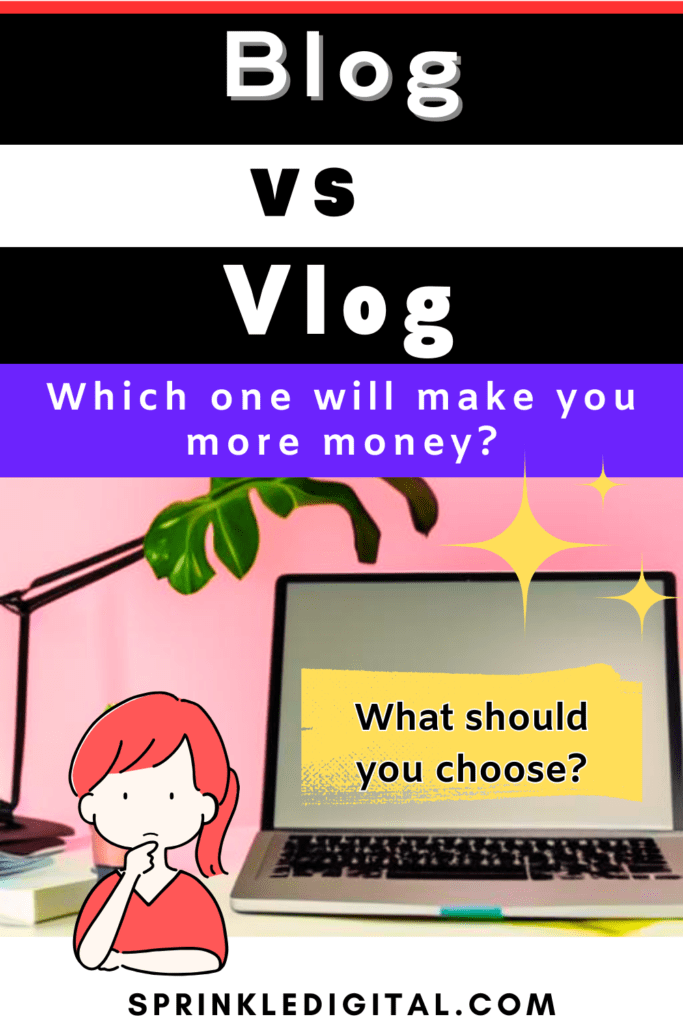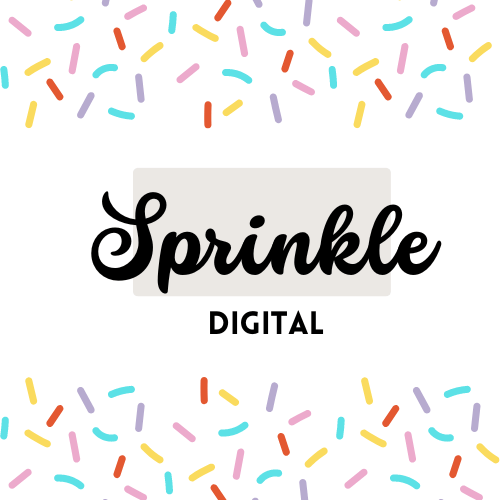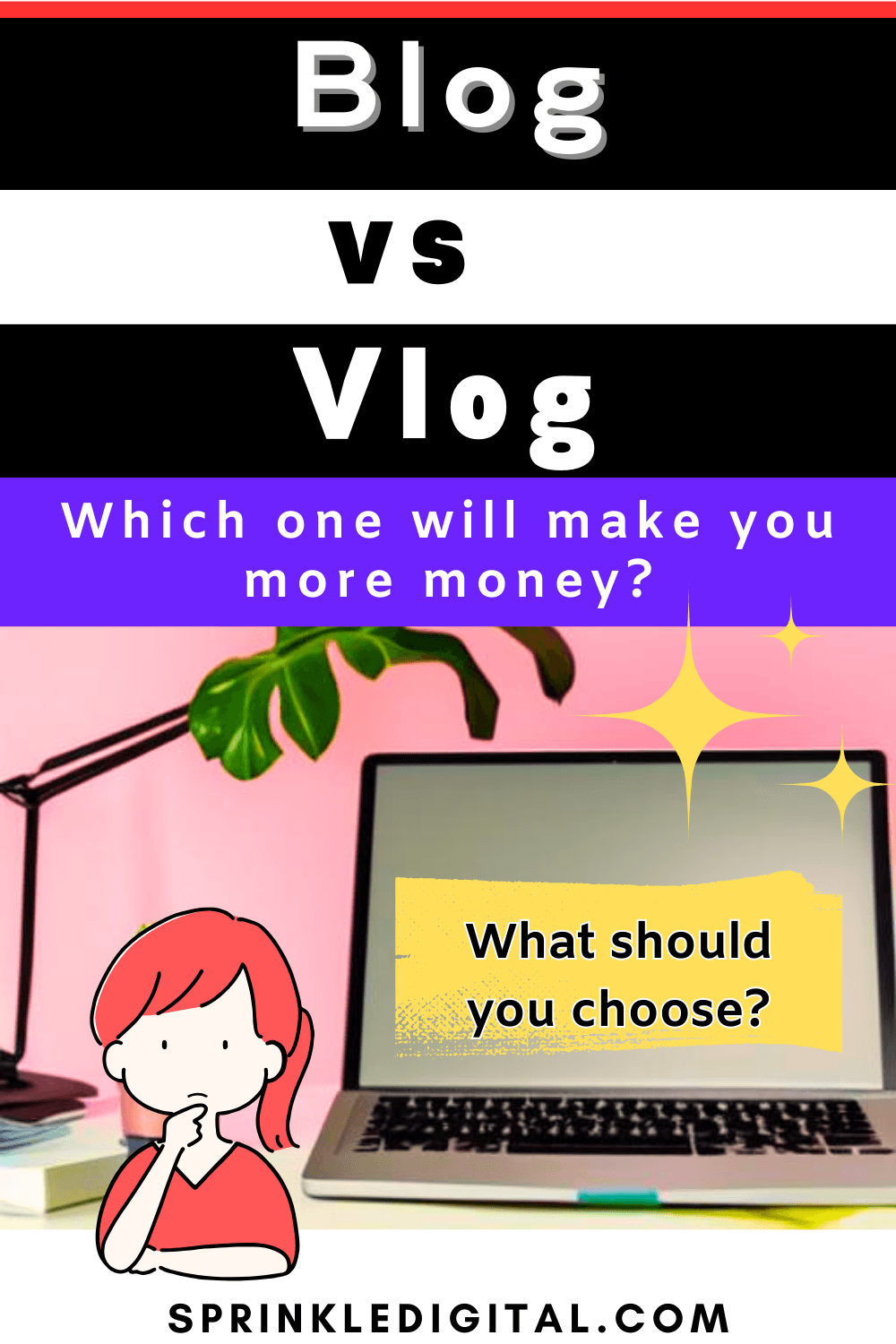Trying to choose between blogging vs vlogging? It can be tough to decide which one suits you best. Both have their advantages and disadvantages and they require different skill sets and resources. So how much can you make and which one is for you?
Blogging vs Vlogging
Blogging has been around since the first few blogs popped up in the late 90s. It remains a popular way to share information and connect with others online. With a blog you have the freedom to write about any topic that interests you whether it’s cooking, travel or garden gnomes. Although those buggers can be somewhat creepy. You know that feeling of being watched. Ya it’s giving me gnome vibes. Anyhooow blogging is a platform that can be used for promoting businesses building brands or simply expressing yourself.
On the hand, vlogging (video blogging) is a newer medium that gained popularity in the mid 2000s when high quality video cameras became more accessible. Platforms like YouTube made it easy for anyone to create and share videos for free. With a vlog you can showcase your personality and life through video content.
If you’re considering creating content, you might be hesitating between blogging vs vlogging. Both provide ways to share your thoughts and ideas with the world. But they do have their differences. In this section we’ll explore the definitions of blogging and vlogging along, with their differences.
Definitions
Blogging is when you write and publish articles, which are also known as blog posts on a website. These posts can cover a wide range of topics, from personal experiences to news and current events. Blogs posts can vary in length depending on your preference. You can also incorporate visuals, like images and videos to help illustrate your point.
Vlogging is short for video blogging. It involves creating video content that is then uploaded onto a website or social media platform (like Youtube). Vlogs can cover subjects like blogs, but use a completely different format altogether. Think: video (for vlogs) and text (for blogs).
Vlogs are more captivating and accessible for those who prefer video content over written material.
Differences Between Blogging vs Vlogging
Another big difference between blogging and vlogging is the time investment required to create content. Writing a blog post can take anywhere from 15 minutes to hours depending on the complexity of our text. On the hand, creating a vlog can be more time consuming as it involves filming, editing and uploading video footage.
Also, building an audience and monetization potential vary between blogs and vlogs. Although both platforms offer opportunities for growing an audience and earning money they require different strategies. Let’s say when trying to monetize your content you find that vlogging provides more options for sponsorships and product endorsements. This could be a reason to go with vlogging.
On the other hand, if your goal is to build a loyal audience you might find your able to connect more deeply with readers, on a personal level (not saying this is not possible with vlogging). It all depends on your niche how you are more comfortable expressing yourself.
How Much Can you Make Blogging vs Vlogging?
Here are some examples of how much individuals, in the blogging and vlogging industries are making. Keep in mind that none of this comes easily. It always requires work, dedication and commitment.
Pat Flynn, a blogger makes, over $100,000 per month through affiliate marketing, digital product sales and sponsored content.
On the hand Dude Perfect is a group of vloggers who specialize in sports and entertainment content. They reportedly made $20 million in 2019 by leveraging YouTube ad revenue and merchandise sales.
When comparing the income potential between blogging and vlogging these are important factors you need to consider:
1. Niche: The choice of niche greatly influences income potential. Certain niches may prove profitable for bloggers while others might be better suited for vloggers. For example, technology or travel niches often work well with video content whereas finance or marketing niches might be better through written text.
2. Audience Size: The size and engagement level of your audience matters. Bloggers or vloggers with a dedicated following are likely to earn more than those with audiences. And I’m not talking about the amount of followers or subscribers, but quality of dedicated followers.
3. Monetization Methods: How you will monetize your blog or youtube channel matters. Both bloggers and vloggers have access to avenues for monetizing their content like ads, sponsored content collaborations, affiliate marketing partnerships, merchandise sales among others. You need to sit down and brainstorm which ones exactly you will be using and how.
4. Content Quality: Creating quality and valuable content is crucial. Your content needs to resonate with your audience and provide value. It is this value that will attract sponsors and ultimately allow you to make money.
5. Platform: The choice of platform for hosting your content can impact your earnings. For example, YouTube is a platform for vloggers while bloggers often opt for WordPress or other blogging platforms.
6. Consistency and Effort: Consistency and effort play a role in generating income. Successful content creators devote time and effort to producing and promoting their content. Don’t give up in the beginning. It is likely you won’t see results immediately. Don’t let that stop you.
7. Industry Trends: You need to be adaptable to industry trends and align your content with what your audience wants. The better you do this, the more likely you will be rewarded.
8. Location: Geographic location can also affect income potential. Ad rates, sponsorships and affiliate programs may offer rates in regions. For example, a YouTube audience from East Asia will earn less than an audience from the U.S.A or Canada.
The Advantages and Disadvantages of Blogging
Advantages
Blogging is a great space to express your thoughts and opinions on a particular topic. It’s a place where you can share your opinion, vent and connect with others.
1. Anonymity: When creating a blog, you can decide not to disclose your full name and photo a.k.a blog anonymously. As someone who hates sharing myself on social media, this is what I have been comfortable doing. I personally have not told anyone about my blog and feel more relaxed that I can post whatever I want without feeling pressured that a friend or relative knows about my blog.
2. Time and Effort: Blogging does require time and effort. You need to brainstorm topics, write articles and promote your blog to attract readers. However, once you establish a defined strategy and a routine is set, blogging can become a passive source of income. It can also take less time than creating a video where you have to take into account ‘fun’ editing *cough* *cough*.
3. Monetization: One of the advantages of blogging is the opportunity for monetization. You can generate income through ways like affiliate marketing, sponsored posts and ads. However make sure you focus on creating high quality content and actively engaging with your audience. You don’t want to come off as carpet seller, and ‘I’m only here to sell you stuff’.
Pros and Cons of Vlogging
Pros of Vlogging
• Vlogging allows you to form a connection with your audience. Through videos you can showcase your personality, lifestyle and perspectives which can help in building a following. If you feel more comfortable talking in front of a camera and don’t like writing this can be great for you.
• Video content is more captivating than text or images as it has the potential to go viral thereby expanding your reach.
• You can drive traffic from your vlog to your website or social media platforms.
• Vlogging has the potential to generate income through means like ads, sponsorships or product sales.
• Vlogging can help position yourself as an authority in your niche while providing information to your audience.
• Platforms like YouTube have an audience, which can help you reach a number of people and potentially increase your viewership and engagement.
Cons of Vlogging
• Creating quality vlogs consistently requires an investment of time and effort. This includes planning, scripting, filming and editing your videos, which can be quite time consuming. If you’re new, you’ll have to invest in starter video editing tools like a camera, microphone and computer to produce high quality content.
• It’s not for everyone. Vlogging demands a set of skills compared to blogging. You need to feel comfortable speaking up in front of a camera. And be able to create informative video content.
• You need to have a decent level of video quality. Paying attention to details such as lighting, quality and video format is essential for producing top notch vlogs. These factors contribute significantly to the quality of your content.
Ready to Start a Blog?
Here’s my step by step guide on How to Start an Anonymous Blog INCOGNITO and Make Money
Takeaway
Ultimately both blogging and vlogging have their strengths and weaknesses. Stick to blogging if you enjoy writing and prefer expressing yourself through written content.
On the other hand, if you enjoy being, in front of the camera and prefer communication vlogging can be a great option.
Some bloggers may earn money while others may find success with vlogging. Ultimately your choice between blogging and vlogging should align with your interests, skills and the preferences of your target audience.
If you’re undecided you can even incorporate both written and video content to maximize your income potential. See what resonates with your audience. The key is to experiment and find what works best for you.
So what are you leaning more towards: blogging or vlogging and why?
Let me know in the comments.
FAQs
1. Can a blog also be a vlog?
Absolutely! Many bloggers have started incorporating vlogging into their content strategy to add diversity and connect with their audience on a level. You can create a channel for your vlogs or integrate videos into your blog posts. Just make sure that the videos are relevant, to your blogs niche and provide value to your readers.
2. Which one is more profitable; blogging or vlogging?
How much you make blogging vs vlogging depends on various factors such as your chosen niche, target audience, the quality of your content and your monetization strategies. Some bloggers generate income through affiliate marketing, sponsored posts or selling products. On the hand vloggers earn revenue from sources like YouTube ads, brand partnerships or merchandise sales. Ultimately the decision between blogging and vlogging should be based on aligning with your goals and strengths.
3. Is vlogging less challenging than blogging?
Comparing the challenges between vlogging and blogging depends on your preferences and talents. Vlogging requires skills like filming, editing and audio recording; however it offers an engaging and expressive platform compared to written content. On the other hand blogging requires writing skills along with research and SEO knowledge; nevertheless it provides flexibility and scalability compared to video content. Make sure to select the one that complements your skills and preferences while maintaining consistency and authenticity, in your content creation.
Found this guide on blogging vs vlogging helpful? Pin it now and read it again later

Save and share!

